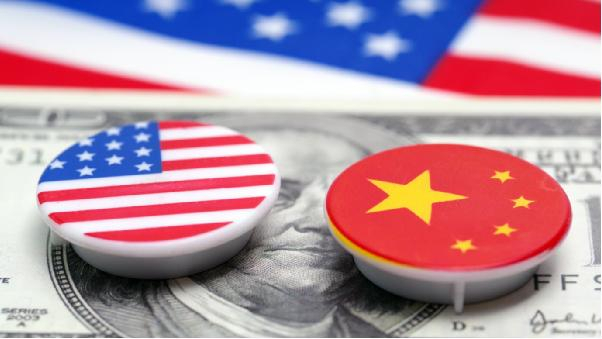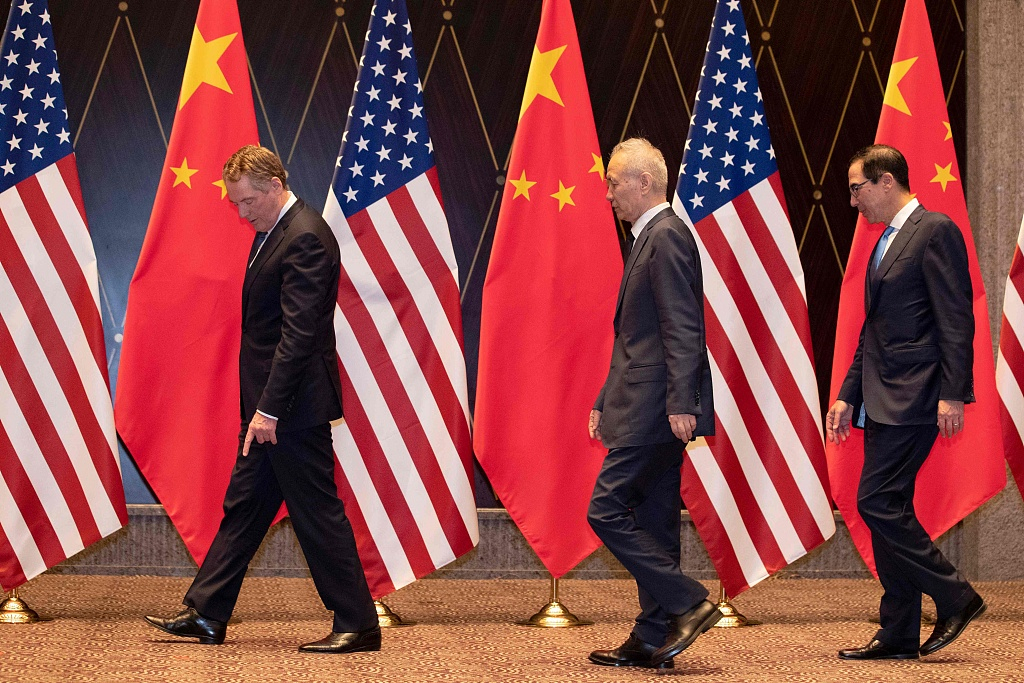

Editor's note: The article was first published by China Plus on Aug. 2, 2019. The article does not necessarily reflect the views of CGTN.
Just hours after the 12th round of China-U.S. trade talks wrapped up in Shanghai, U.S. President Donald Trump tweeted that the United States would impose an additional 10 percent tariff on 300 billion U.S. dollars of imports from China starting on Sept. 1.
The move, which goes against the consensus reached between the two heads of state at the G20 Osaka Summit in June, is not conducive to solving the ongoing bilateral trade issues. Beijing has expressed to Washington its resolute opposition to the move, saying that it will take steps necessary to protect China's core interests.
The latest round of talks was the first since the consultations were suspended in May. In their respective statements issued after the two-day meeting in Shanghai, both sides said the talks were constructive.
They reached an agreement to continue the negotiations in the United States in September, following intensive working-level consultations in August.
This outcome didn't come easy, and the international community expects the two countries to maintain the momentum in their dialogue on the basis of equality and mutual respect, which the two sides agreed upon in Osaka.
The decision by the United States to introduce another tariff on goods imported from China is a move in the wrong direction. Exerting extreme pressure on China during the talks, which has been the consistent approach used by Washington over the past one-and-a-half years, won't have the desired effect.
Instead, it damages the goodwill between the two sides and creates more barriers to solving the problem.

U.S. Trade Representative Robert Lighthizer (L), Chinese Vice Premier Liu He(C) and U.S. Treasury Secretary Steven Mnuchin (R) are at the Xijiao Conference Centre in Shanghai, July 31, 2019. /VCG Photo
The accusations that Beijing has made no progress in increasing agricultural imports from the United States and failing to block the flow of the drug fentanyl into the country are groundless. Since July 19, buyers in China have reached out to suppliers in the United States to place orders for products including soybeans, cotton, pork, and sorghum.
Deals have been made to purchase 130,000 tons of soybeans, 40,000 tons of pork and pork products, and 120,000 tons of sorghum, in accordance with China's domestic demand and market rules.
These buyers have applied for waivers from tariffs imposed by China on imports of these goods from the United States, and the approval process is underway. The United States needs to take into account the time it takes to go through the approval procedures.
As for the issue of fentanyl regulation, this takes time, perseverance, and global coordination. On May 1, China listed all fentanyl-related substances as controlled narcotics for nonmedical use – a sign of the government's determination to combat the flow of the drug.
China's law enforcement agencies have also cracked several cases of illegal processing and trafficking of fentanyl to the United States. The quantity of illicit fentanyl found in China is extremely low compared with the amount available in the United States, which shows that China is not the main source country of the drug for the American market.
The widespread presence of fentanyl in the United States is the result of various factors, and Washington can't simply pass the buck when it comes to finding a solution to that crisis.
The economic and trade problems between China and the United States can't be solved overnight. Negotiations on such complex issues take time and patience. Washington's latest move goes against the interests of both countries and the world at large, as it will likely add recessionary pressure to the global economy.
It's in everyone's interest for Washington to get back on the right track and work towards solving problems through consultations based on equality and mutual respect.
(If you want to contribute and have specific expertise, please contact us at opinions@cgtn.com.)

Copyright © 2018 CGTN. Beijing ICP prepared NO.16065310-3
Copyright © 2018 CGTN. Beijing ICP prepared NO.16065310-3